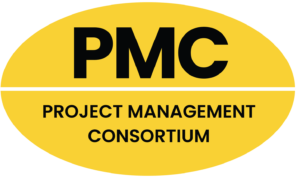1. Saving time and enhancing project efficiency
An advantage of a comprehensive approach to construction is that everyone works as a team and is focused on the bigger picture, not just their individual tasks. The architect can catch potential issues early and address them before they become bigger issues by having a collaborative relationship with the project manager and furnishings team.
Time is also valuable to a project owner. It is a full-time job in and of itself to keep track of the many moving parts in commercial construction. The inefficiencies of dealing with multiple contractors can be eliminated by relying on a construction partner who can handle every aspect holistically.
2. Communication that is more effective
A project’s transparency and symbiotic approach to construction are facilitated with everyone’s eyes on it from its inception.Furthermore, communication and alignment with the project owner have been streamlined. Due to the fact the project owner is a member of the team and participates in planning meetings and status updates, he or she can get answers practically in real time.
3. Accountability is more important
A construction manager can keep a tighter rein on the work being performed since all parties are part of one team and work is controlled by him. Conflicts and adversarial relationships are also less likely. There is no other company or stakeholder to blame if an issue needs to be resolved. In the event of an issue, only the construction firm is responsible for resolving it.
4. Scheduling with greater accuracy
A project’s schedule is an important factor in controlling costs. It is easier for full-service contractors to keep their teams on schedule since they are aware of their availability. Due to their vast network and relationships with other team members, they can help get things back on track if there is a delay.
5. A flexible approach
Project owners often make tweaks and changes as a project progresses. As a result of the holistic nature of full-service construction management, potential changes can be identified early in the process when they are less likely to affect the schedule and budget. It will cost more and be more disruptive to make those changes later in the process. We are there to deal with change orders quickly if they need to be made.

6. Savings on costs
It is more cost-effective to plan, design, construct, and furnish a new facility or renovation through a single source. It is true that keeping a project on schedule can save money, but it goes beyond that. Project owners are able to make informed decisions based on a clear plan and strategy from the start. When all parties are at the table, they can work together to develop estimates, find cost savings, and minimize scope creep. Getting funding may be possible with the help of a true construction partner.
7. Stress reduction
These factors together result in a less stressful project owner experience, which has its own value. From start to finish, the building process can be enjoyable for the project owner when fewer things go wrong and communication flows smoothly.
Factors to consider when furnishing a home
In addition, various construction companies will define “full-service” differently, and many don’t include furniture in their services. The importance of including commercial furnishings in the initial planning process cannot be overstated. The owner of a project will have to compromise their vision of the finished product when furnishings, fixtures, and equipment are treated as afterthoughts and not budgeted properly.
A furniture specialist can also help save money in unexpected ways during the planning stage. By arranging furnishings in the right way, a building’s floor plan can be optimised for maximum functionality, thereby saving space. A commercial furnishings expert may recommend a solution that replaces permanent walls or cabinets, creating a flexible workspace that allows for future expansion or reconfiguration without the need to demolish.































